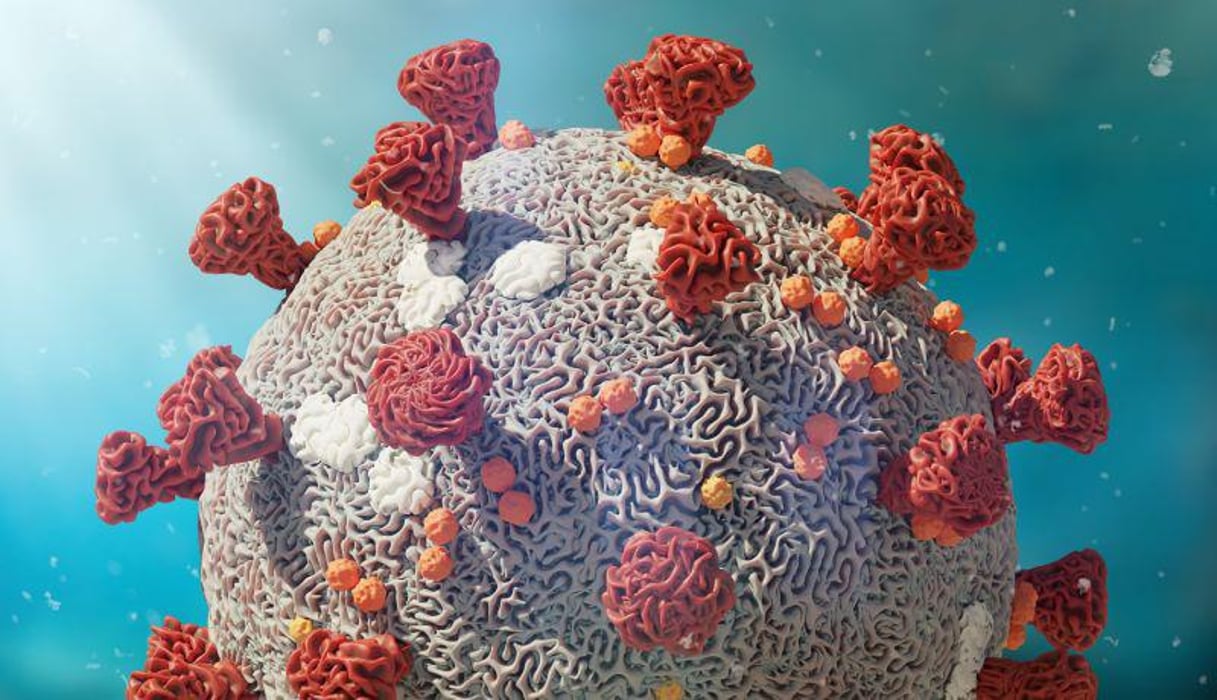Casirivimab + Imdevimab Prevents Progression to Symptomatic COVID-19

WEDNESDAY, Jan. 26, 2022 (HealthDay News) -- For asymptomatic severe acute respiratory syndrome coronavirus 2 (SARS-CoV-2) polymerase chain reaction (PCR)-positive individuals living with an infected household contact, treatment with the subcutaneous casirivimab and imdevimab antibody combination reduces the incidence of symptomatic COVID-19 over 28 days, according to a study published online Jan. 14 in the Journal of the American Medical Association.
Meagan P. O'Brien, M.D., from Regeneron Pharmaceuticals Inc. in Tarrytown, New York, and colleagues conducted a multicenter trial of close household contacts of a SARS-CoV-2-infected index case who were enrolled between July 13, 2020, and January 28, 2021. Results were reviewed from 314 individuals positive on SARS-CoV-2 PCR testing who were randomly assigned to receive one dose of subcutaneous casirivimab and imdevimab (158 participants) or placebo (156 participants).
At baseline, 204 participants were asymptomatic and seronegative and were included in the primary efficacy analysis. The researchers found that subcutaneous casirivimab and imdevimab significantly prevented progression to symptomatic disease compared with placebo (29.0 versus 42.3 percent; odds ratio, 0.54). The number of symptomatic weeks per 1,000 participants was also reduced with casirivimab and imdevimab (895.7 versus 1,637.4 weeks), with a reduction of about 5.6 days in symptom duration per symptomatic participant. There was also a reduction in the number of high viral load weeks per 1,000 participants in association with treatment with casirivimab and imdevimab (489.8 versus 811.9 weeks).
"If, in the future, casirivimab and imdevimab therapy is authorized for use in people who are infected but do not have symptoms, this monoclonal antibody combination could potentially be used in high-risk situations, such as for immunosuppressed individuals who are RT-PCR positive but asymptomatic," write the authors of an accompanying editorial.
Several authors disclosed financial ties to Regeneron Pharmaceuticals, which funded the study together with F. Hoffmann-La Roche.
Related Posts
AHA News: ¿Apasionado de los deportes? Veamos cómo el ver un partido de fútbol puede afectar su salud
MARTES, 18 de julio de 2023 (American Heart Association News) -- Crystal...
2019 to 2020 Saw Decrease in Pediatric Emergency Visit Rate
TUESDAY, June 6, 2023 (HealthDay News) -- For children aged 0 to 17 years, the...
Diagnostic Accuracy of MRE Indices Studied for Active Crohn Disease
FRIDAY, Aug. 12, 2022 (HealthDay News) -- Magnetic resonance enterography (MRE)...
Posthospitalization Meal Delivery Boosts Outcomes for Older Adults
WEDNESDAY, June 28, 2023 (HealthDay News) -- Posthospitalization home-delivered...
